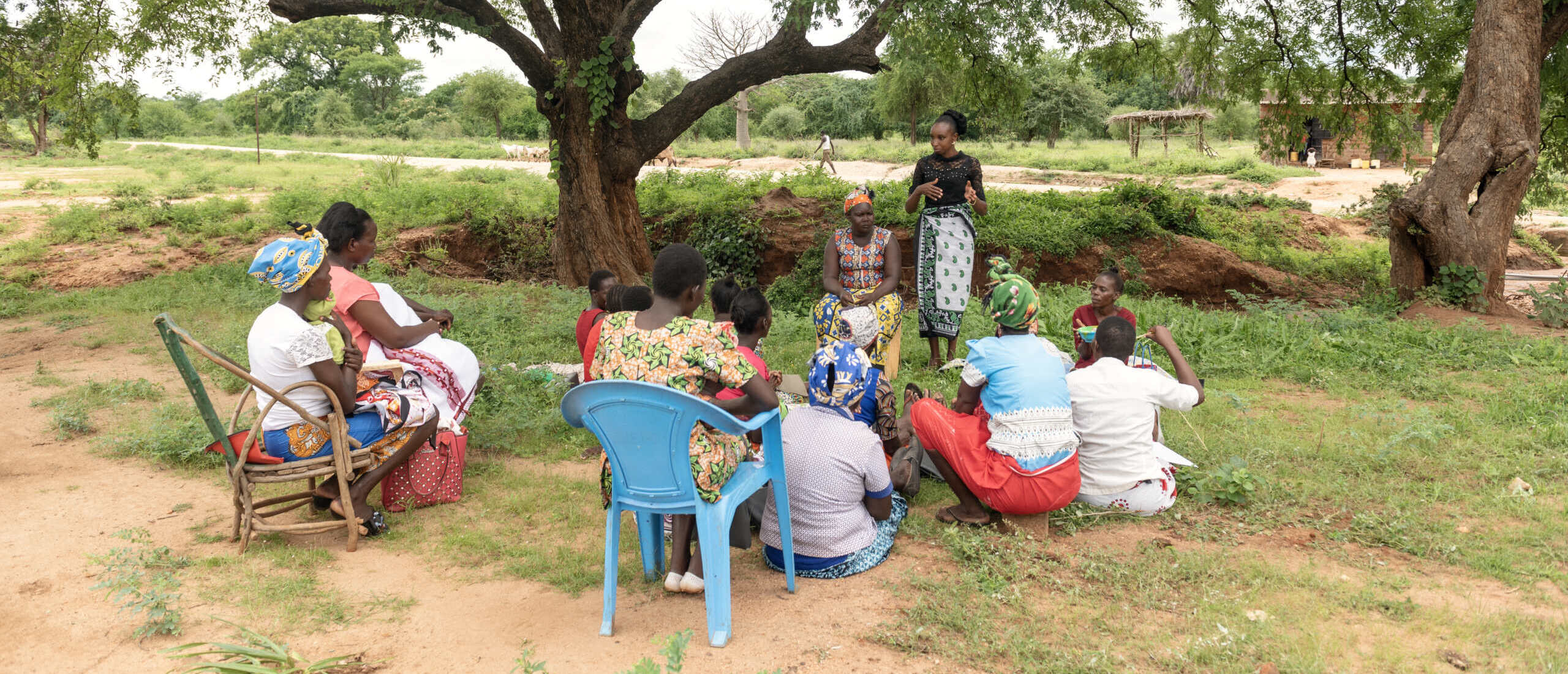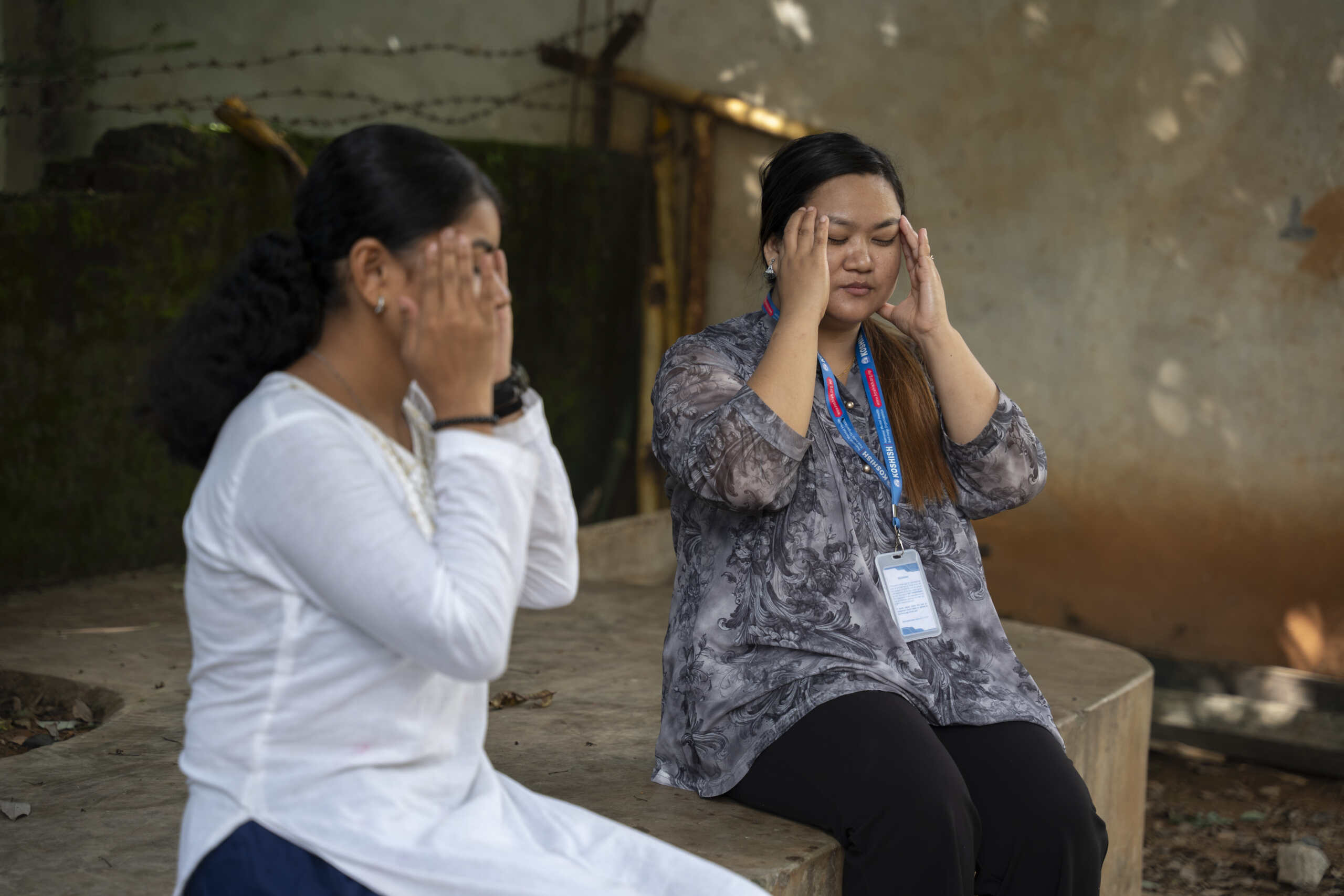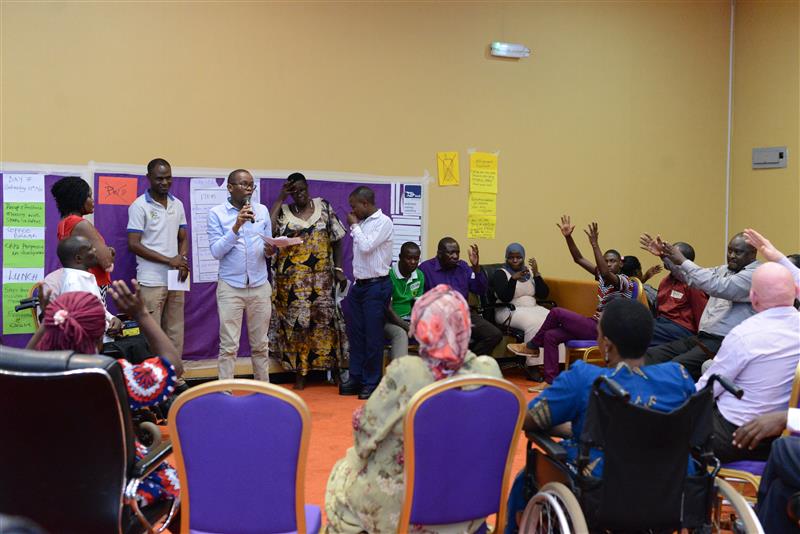Growth in humanitarian action
Blog | September 13, 2022
This blog on growth in humanitarian action relates to our Annual Report 2021.
In 2021, CBM Global’s humanitarian work focussed on responding to emergencies as they unfolded, building the capacities of partners and country offices to be ready to respond, forming new strategic partnerships to deliver global humanitarian projects, developing and promoting learning and technical products, and continuing to raise awareness on disability inclusion in relevant global humanitarian platforms and interagency working groups.
Response to humanitarian crises
In 2021, CBM Global delivered humanitarian assistance to nine humanitarian crises: in Bangladesh (COVID-19 and Rohingya Refugee), Nepal (COVID-19), Indonesia (COVID-19 and Mount Merapi Volcano Eruption), Burkina Faso (COVID-19), Madagascar (food crisis) and Philippines (Typhoon Goni and activation of new response to Typhoon Rai at the end of the year). We provided rehabilitation services, mental health and psychosocial support, multipurpose cash assistance and other basic needs to approximately 95,000 beneficiaries in collaboration with 18 partners including organisations of persons with disabilities (OPDs).
OPDs and mainstream actors’ capacity strengthening and engagement in Inclusive Humanitarian Action
The current momentum that recognises the importance of including people with disabilities in humanitarian action and the subsequent need for technical assistance has led to a growing demand for both awareness raising of the IASC Guidelines and support for its implementation, and the need to meaningfully engage people with disabilities in the entire process of technical assistance.
Against this backdrop, CBM Global initiated two global projects aimed at supporting the meaningful participation of OPDs in relevant humanitarian processes and providing them with resources to do so. These projects are being jointly delivered in partnership with UNICEF and International Disability Alliance (IDA) on one hand and with International Organization for Migration (IOM) and IDA on the other and have received funding from the United States Agency for International Development (USAID) and Department of Foreign Affairs and Trade (DFAT) respectively.
In addition, within the framework of the EU-funded VIVID-T project, CBM Global delivered training on inclusive humanitarian action to all consortium members.
Awareness raising, development and promotion of learning materials
In May 2021, during the Humanitarian Network and Partnership Week (HNPW), CBM Global organised and delivered an online webinar on Disability Inclusion in Cash Assistance to continue raising awareness on the importance of inclusion in what is the most rapidly growing modality of humanitarian delivery.
As part of our commitment to generating evidence and good practice from our work, on August 19th (which is also World Humanitarian Day), CBM Global launched the “Disability Inclusive Cash Assistance: Learnings from practice in Humanitarian Response” report. Subsequently, on International Day of Persons with Disabilities on December 3rd, CBM Global released its good practice documentation from the Rohingya Response. CBM Global also engaged in more specific research activities contributing to the rapid Assistive Technology
Assessment (rATA) conducted in the Rohingya camps in Bangladesh. This informed the World Health Organization Global Report on Assistive Technology.
Finally, over the course of 2021, we developed new content and translations of the Humanitarian Hands On and Inclusive Disaster Risk Reduction Tool. These were promoted in partnership with international organisations.
External engagement
In 2021, CBM Global continued to co-chair, together with UNICEF and IDA, the Disability Reference Group (DRG) contributing to growing the membership to 264 individuals representing more than 80 organisations (including donors), and bringing together multiple stakeholders on a monthly basis to share their work on a range of topics related to disability inclusion, raising awareness through the organisation of several online events at HNPW, COSP and in preparation for the Global Disability Summit, as well as co-leading one of the DRG workplan workstreams on OPD capacity building.
In addition, CBM Global continued supporting the representation of the Humanitarian Inclusion Standards at the Humanitarian Standard Partnership platform, chairing the Elrha DOAI Technical Working Group, engaging in the Global Shelter Cluster Disability Working Group supporting the revision of the All Under One Roof Guidelines, and was accepted to join the CaLP Technical Advisory Group.
https://cbm-global.org/blog/growth-in-humanitarian-action
Related News

What our partners told us and how it shapes our future
One of our strategic priorities as a Federation is to shift power in partnerships....

Breaking Stigma, Building Hope: Suicide Prevention in Nepal
After losing her young daughter to suicide, Maya developed a mental health condition while...

Accessibility, reasonable accommodation, and budgeting for inclusion
Budgeting for inclusion, accessibility, and reasonable accommodation must be...
